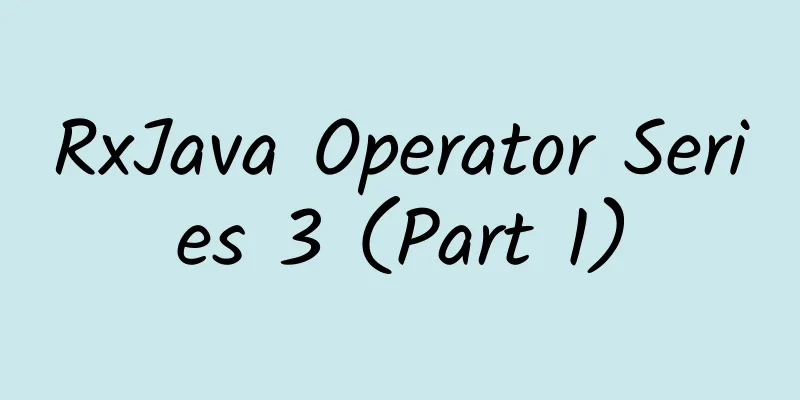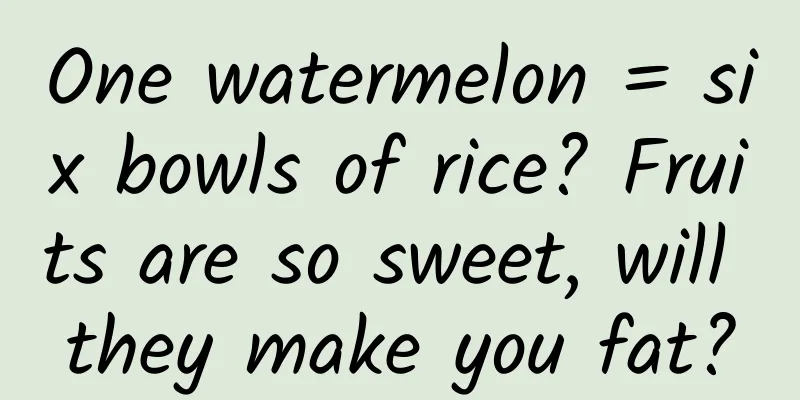RxJava Operator Series 3 (Part 1)

|
RxJava Operator Series Portal
https://github.com/xiehui999/fuseProgram
Preface In the previous article, we introduced some operators for creating Observables and converting data. Some of the operators for data conversion are still difficult to understand, but I believe that if you type the code once and modify the values of various parameters and observe the execution log, it is still easy to understand. On the official website, each operator is given a legend. If you don’t understand the text clearly, you can also refer to the diagram to help yourself understand. In this article, we will introduce some common filter operators. Filter operators in RxJava are also relatively easy to understand. Okay, let’s continue our learning journey together. Filter This operator receives a Func1 parameter, in which we can use our own judgment conditions to judge the data we want to filter. When the data passes the judgment condition, it returns true to indicate that the data is emitted, otherwise it is not emitted, thus filtering out the data we want. As shown below, we filter out numbers that are not divisible by 2.
Output log information
ofType This operator is a special form of the filter operator. It filters an Observable to return only data of a specified type. For example, when the data source has string and int data, we can use this operator if we want to filter out the string, as shown in the following example code
Output log information
Of course, in addition to filtering basic types of data, you can also filter custom types of data. First If we are only interested in the first item of data emitted by the Observable, or the first item of data that meets a certain condition, we can use the First operator.
The above log only prints a value of 10. Of course, we can also pass a parameter Fun1 to first and specify a condition as follows
The output information at this time is the first item of data 13 that satisfies integer > 12. firstOrDefault This operator is a variation of the first operator. It mainly emits a default value you specify in the parameter when no data is emitted. As shown below, it has two overloaded methods.
If the above code is written, the execution will have the same effect as the first one. Because the default value is used when no data is emitted, we change the above code as follows, using empty to create an Observable that does not emit any data but terminates normally.
It is found that the data 10 is output at this time. The operator also provides an overloaded method firstOrDefault(T defaultValue, Func1 super T, Boolean> predicate) with two parameters. We can add a condition. The following example
At this time, data sources 10, 13, and 16 do not meet the requirement of being greater than 20, so the default value 15 will be output. If we increase the data source data by a value of 22, then the default value will no longer be output, but 22 will be output. takeFirst The difference between this operator and the first operator is that if the original Observable does not emit any data that meets the conditions, first will throw a NoSuchElementException and directly execute onError(), while takeFist will return an empty Observable (onNext() will not be called but onCompleted will be called) As shown in the following sample code
The output information after execution is as follows
If you use takeFirst at this time
It is found that no exception occurs at this time, but onCompleted() is executed. single If the original Observable does not emit data exactly once before completion, it will throw a NoSuchElementException. In plain language, it can be understood that if the data sent is one item, the value of this item is output. If there are multiple data, an exception is thrown and the onError() method is executed. The following code
Output information
If you make a simple change to the above code
At this time, the data 13 will be output, because there is only one data after passing the filter. single also has two variants: singleOrDefault(T) and singleOrDefault(T,Func1). You can test the difference with your own code. Last This operator has the opposite meaning of first. It is used when we are only interested in the last data emitted by Observable or the last data that meets a certain condition. Sample Code
After execution, the output is 13. It has an overloaded method that can specify conditions and obtain the last data that meets the conditions. Modify the above code as follows
At this time, the final output data is 11. This operator has several variants like first, such as lastOrDefault and TakeLast. You can test the specific effect yourself. Skip This operator skips the first few items of data and then emits the data.
Output log information
There are two overloaded methods for skip.skip(long time, TimeUnit unit) is executed on the computation scheduler by default. If you want to update the UI, you need to specify it as AndroidSchedulers.mainThread() through the observeOn method. Of course, there is also an overloaded method skip(long time, TimeUnit unit, Scheduler scheduler) to specify the scheduler. One thing to note is that the first parameter of these two overloaded methods is not the number of data to be skipped, but the time.
As shown in the above code, interval generates a data every 500 milliseconds, skip is set to 2 seconds, and the subscription is unsubscribed when the data is greater than 10. skipLast Just the opposite of skip, ignoring the n data items generated by ***
Output log information
Continue |
<<: Experienced driver talks about racing technology: Android 7.0 adaptation experience
>>: RxJava Operator Series 3 (Part 2)
Recommend
Mysterious "architecture" on the African continent - the strange African ant nest
Strange African ant nest When I was working in Af...
What did WeChat say in response to banning DingTalk? Why did WeChat ban DingTalk?
On March 3, many places reported that the "H...
The most comprehensive core strategy for user operations!
"Operation is to keep users," this stat...
Dear advertiser, what misunderstanding do you have about advertising creativity?
A few days ago, a colleague sent me an App screen...
Don’t lose weight too much! At critical moments, fat can save lives!
Review expert: Peng Guoqiu, deputy chief physicia...
Latte and coffee will "take away" the iron in your body and cause anemia? Nutrition experts say
Recently, the topic #The cause of your anemia may...
Example: How to design an operational activity H5?
This article can meet the following needs: Want t...
In the universe, a giant structure that shouldn't exist was discovered
In 2021, Alexia M. Lopez was pursuing a graduate ...
The glory of the Internet giants is gone, and the A-share "Internet +" bubble may burst
Internet companies represented by Apple, Google, ...
10 apps removed from shelves by the Ministry of Industry and Information Technology! They are peeking at your photo albums
Last month, the Ministry of Industry and Informat...
120 pieces of experience on huge Qianchuan delivery, a must-read for novices!
Without further ado, let’s get to the point! 1. W...
Don’t rush to “take action” even if you are “inspired”. Patients with heart disease should be cautious when traveling during the short holiday.
Written by Shi Shutian (Deputy Chief Physician, D...
Methods and strategies for generating private domain traffic from 0 to 1!
Based on his own work experience and combined wit...
IDC: China's regional industrial Internet platform and service market will reach US$264 million in 2021, a year-on-year increase of 28.6%
IDC recently released the "China Industrial ...
Drive.ai completes $50 million financing, Andrew Ng joins board of directors
Drive.ai, a rather mysterious self-driving startup...



![[Smart Farmers] A "iron watermelon" grows on a gourd tree! How powerful is this "all-rounder" in the plant world?](/upload/images/67f2131b2d9c9.webp)





